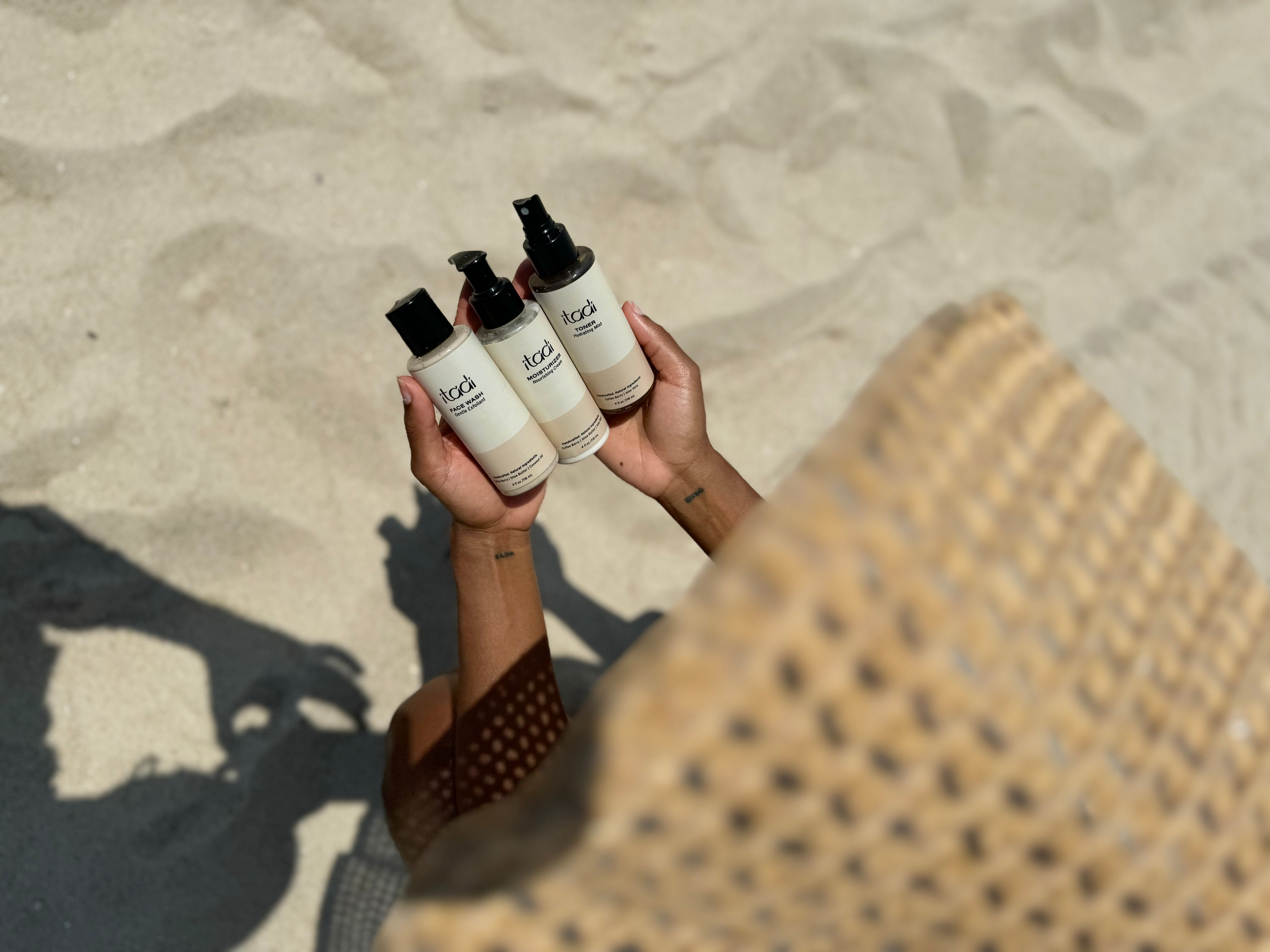Does your skin often react to new products with redness, itching, or stinging? Do environmental changes or even stress leave your complexion irritated and uncomfortable? If so, you likely have sensitive skin. Caring for sensitive skin can feel like a delicate balancing act, but with the right approach, you can build a routine that soothes, protects, and strengthens your skin without causing further irritation. This guide will help you navigate the world of sensitive skincare with simple, effective solutions.
Understanding Sensitive Skin
Sensitive skin is not a skin type in itself (like oily or dry), but rather a condition that can affect any skin type. It means your skin’s natural protective barrier is often compromised, making it more reactive to triggers. Common characteristics of sensitive skin include:
•Redness: Easily flushed or prone to visible capillaries.
•Itching, stinging, or burning: Reactions to products, temperature changes, or even water.
•Dryness or flakiness: A weakened barrier struggles to retain moisture.
•Breakouts: Can be a sign of irritation rather than typical acne.
•Reactions to fragrances or dyes: Common irritants in many skincare products.
The primary goal for sensitive skin is to minimize irritation, strengthen the skin barrier, and provide gentle hydration.
Your Simple 3-Step Routine for Sensitive Skin
Less is often more when it comes to sensitive skin. A minimalist approach, focusing on gentle, well-chosen products, is key. Stick to these three essential steps twice a day.
Step 1: Cleanse – The Gentle Touch
Cleansing for sensitive skin is all about being incredibly gentle. You want to remove impurities without stripping natural oils or causing any friction.
•When: Morning and night.
•What to use: Opt for a creamy, milky, or gel cleanser that is fragrance-free, soap-free, and hypoallergenic. Look for terms like "gentle," "soothing," or "for sensitive skin." Avoid foaming cleansers, harsh sulfates, and physical exfoliants.
•How: Wet your face with lukewarm water. Apply a small amount of cleanser to your fingertips and gently massage it onto your face using light, circular motions. Do not rub or scrub. Rinse thoroughly with lukewarm water and gently pat your skin dry with a clean, soft towel. Avoid rubbing.
Step 2: Moisturize – Soothe and Protect
Moisturizer is crucial for sensitive skin to help repair and strengthen its compromised barrier, locking in hydration and protecting against external irritants.
•When: Immediately after cleansing, both morning and night, while your skin is still slightly damp.
•What to use: Choose a rich, emollient moisturizer that is fragrance-free, dye-free, and hypoallergenic. Look for ingredients like ceramides, hyaluronic acid, glycerin, shea butter, or colloidal oatmeal. These ingredients help to restore the skin barrier and provide deep hydration.
•How: Apply a generous amount evenly over your face and neck. Gently massage until absorbed. Don't be afraid to layer if your skin feels particularly dry or reactive.
Step 3: Protect – Daily Sun Defense
Sun protection is non-negotiable for sensitive skin, as UV exposure can trigger redness, irritation, and worsen existing conditions. It also protects against premature aging and skin cancer.
•When: Every morning, as the last step in your routine.
•What to use: Mineral sunscreens (containing zinc oxide and/or titanium dioxide) are generally preferred for sensitive skin as they sit on top of the skin and are less likely to cause irritation than chemical sunscreens. Choose a broad-spectrum formula with at least SPF 30. Ensure it's fragrance-free.
•How: Apply a generous amount to your face and neck. Reapply every two hours if you're outdoors or sweating.
Tips for Managing Sensitive Skin
•Patch Test New Products: Always test a new product on a small, inconspicuous area of your skin (like behind your ear or on your inner arm) for a few days before applying it to your entire face.
•Keep it Simple: The fewer products you use, the less chance of a reaction. Avoid introducing too many new products at once.
•Avoid Known Triggers: Pay attention to what causes your skin to react and try to avoid those ingredients or environmental factors.
•Check Ingredient Lists: Become familiar with common irritants like fragrances, essential oils, alcohol, and certain preservatives.
•Lukewarm Water Only: Hot water can strip and irritate sensitive skin.
•Don't Over-Exfoliate: Sensitive skin rarely tolerates harsh physical scrubs or strong chemical exfoliants. If you must exfoliate, opt for a very mild enzyme exfoliant or a low-concentration PHA once a week, and listen to your skin.
Living with sensitive skin doesn't mean you can't achieve a healthy, radiant complexion. By adopting a gentle, consistent, and minimalist skincare routine, you can soothe irritation, strengthen your skin's natural defenses, and enjoy lasting comfort. Listen to your skin, be patient, and embrace the beauty of a calm, well-cared-for complexion!



0 comments